MercoPress. South Atlantic News Agency
Tag: Argentine GDP
-
Monday, September 29th 2014 - 08:39 UTC
Argentine stats on economic growth again come under suspicion

Argentina’s government released some hopeful economic statistics last week with numbers showing that the economy climbed out of recession in the last quarter. But with skepticism over the numbers, combined with a free-falling peso, in light of Argentina’s debt dispute with holdout creditors, economists still have a grim outlook the Mercosur member economy.
-
Saturday, June 7th 2014 - 04:48 UTC
IMF welcomes Argentina's implementation of actions on CPI and GDP indexes
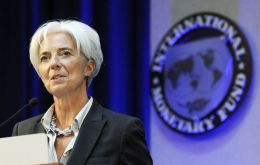
The International Monetary Fund (FMI) welcomed on Friday “all the specified actions,” taken by Argentine President Cristina Fernández administration, to improve Consumer prices and Gross Domestic Product indexes under INDEC National Statistics Bureau orbit.
-
Friday, May 23rd 2014 - 10:17 UTC
IMF to check Argentine new stats on inflation and GDP next month

The International Monetary Fund board has already received a first analytical report on Argentina latest statistics and will address the issue in its next meeting scheduled for 6 June, according to IMF spokesperson Gerry Rice in Washington.
-
Wednesday, April 9th 2014 - 07:29 UTC
IMF joins Argentine GDP linked bonds controversy involving potential payment of 3bn dollars

The International Monetary Fund reported on Monday a steep deceleration of Argentina’s economic activity for 2014, in a context of “high uncertainty”, according to its latest World Economic Outlook released in Washington.
-
Monday, November 18th 2013 - 22:25 UTC
Argentina's annual economic activity grew 4.7% in September, says Indec
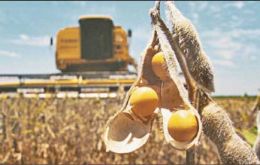
Argentina's economic activity grew 4.7% in September compared with the same month last year, according to the government's much questioned stats office, INDEC. Market expectations were in the range of 3.9%.
-
Friday, August 2nd 2013 - 03:09 UTC
Argentine opposition announces the ‘real life’ GDP growth index: 0.5% in the first quarter
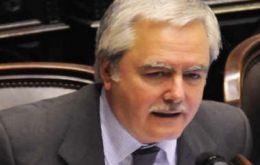
Several Argentine opposition groups have started publishing their own GDP index, (as they do with inflation) based on the average of data processed by private consultants which are exposed to the intimidation of President Cristina Fernandez administration officials.
-
Saturday, January 5th 2013 - 05:53 UTC
Argentina among select group with the highest inflation in the last fiv-year period

Argentina is among the world’s countries which experienced the highest inflation in the last five years based on average data from the country’s private consultants and the IMF. The double digit inflation was estimated at 21.3%, an approximate average for the 2008/2012 period, and compiled by IERAL an Argentine business think-tank.
-
Wednesday, December 26th 2012 - 06:27 UTC
Argentine economy forecast to expand 4.6% in 2013, but dollar clamp remains
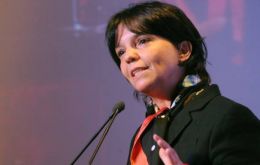
Argentina's economy is seen growing 4.6% next year, improving after drought and a slowdown in top trading partner Brazil took a toll in 2012, the central bank president said in an interview published on Sunday. She also advanced that the so called ‘dollar clamp’ or strict restrictions on the purchase of foreign currency remain.
-
Friday, December 14th 2012 - 20:25 UTC
Argentine inflation 25.4% in last twelve months according to private estimates
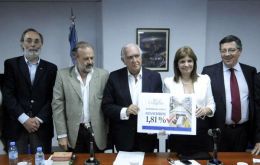
Argentine opposition lawmakers presented November's inflation rate, or ‘Congressional rate’ based in the analysis of nine private agencies, which showed a 1.81% advance against the previous month, accumulating 25.4% in the last twelve months, “the highest in 18 months”.
-
Wednesday, October 10th 2012 - 09:07 UTC
IMF estimates Argentina 2012 growth below government target but above private forecasts
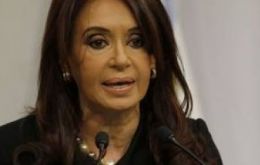
Argentina will grow 2.6% in 2012 according to the IMF latest World Economic Outlook, which is below the 3.4% estimated by President Cristina Fernandez administration for this year’s budget.
